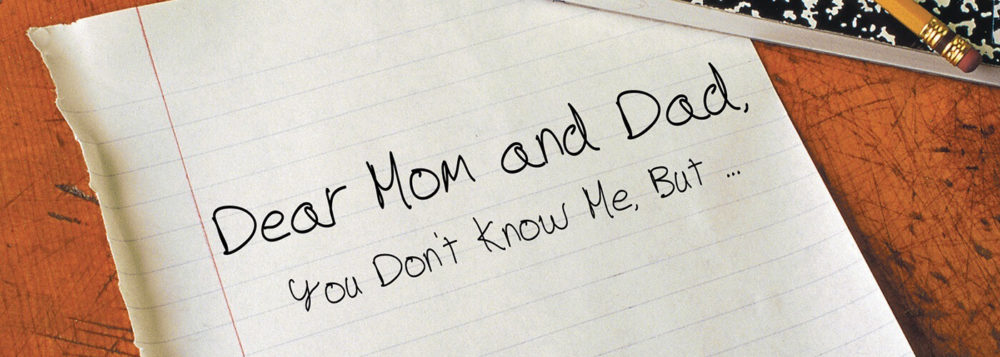I’ve inherited quite a few tendencies from various predecessors and among those is a tendency to collect … anything and everything that falls into my hands. I like to think of it in either one of two veins. I like to think that it’s my thrifty Scottish blood that smacks of “waste not, want not” and that bleeds over into this; it seems that every time I’ve thrown something away or willingly parted company with it, within a short time frame, oh, say two weeks at the most, I will need whatever it was that I discarded.
There is another train of thought which I credit my love of history to, in particular my own history. Dear Mom and Dad could have never been written without that penchant for appreciating the past and how it leads us all, inexorably to our present and ultimately to our future.
In Dear Mom and Dad, I make numerous references to notes in Day Timers and letters received, as well as mental and emotional images extracted from the thousands of photographs which were usually taken by Dad or Marilyn. I also wrote about the children’s library in the First Methodist Church in Okmulgee, Oklahoma. That’s where I learned to appreciate the history of individuals, and without specifically being told, I realized that without someone writing down the events, or in some way keeping track of the events, in the lives of the people I was reading about, there would be no memory of them or their lives at all. They would have been just part of the vast portion of humanity whose contributions to same would have passed away into oblivion.
One would think that would have led to me keeping a detailed journal or diary, but it didn’t. I tried. Many times I began to keep track of my adventures and misadventures on a weekly if not daily basis. The efforts never lasted more than a month and generally not more than a week. I did, however, maintain an appreciation for the value of recording in some fashion, the details of my life, our life. Thus, box after box after box of stuff accumulated as time passed, always with the thought that someday the details of my life would be of value to society. An over inflated ego? Not really; at least not for me. I just wanted to be prepared in case my life, and the details of it, actually came to be of value to society.
So, back to the junk part of my life. I know that so much of what I kept is just plain junk, but it’s my junk and I get great satisfaction from virtually every piece of it. True there are pieces that bring sorrow and pain because they serve up heaping portions of “what might have been.” That’s the nature of history … any history. There is, in any history, a lot of junk. My experience with it is that “self-history” always has a different filter than “other-history.”
Over time I realized that the self-histories, memoirs and autobiographies, tended to filter out the bad stuff that we are all guilty of. None of us wants to be remembered in less than glowing terms do we? Of course we don’t. So, we write about ourselves in terms we would like to be remembered in.
Other-history on the other hand is generally far more realistic, in terms of full disclosure, than self-history. After all, when one is writing about another, full disclosure is not so painful to the biographer as it is to the autobiographer. I didn’t fully understand that until I began to write about my/our own life and discovered how much more willing I, Georgia, was to be critical of George than George was to be critical of himself. It makes me wonder if just to be fair and truly accurate, that George shouldn’t write a memoir about me. That is truly frightening because the thought of crawling back into that mind is something I don’t know if I can do. But, I do need to consider it.
And by the way, in case you’re wondering … my stuff may be junk to others, but to me it’s important memorabilia. So don’t ever, ever ask me to get rid of any of it. Well, maybe those material tubes I used to have on the top of my truck and are still adorning my patio.
